LIXIL makes pioneering water and housing products that solve everyday, real-life challenges, making better homes a reality for everyone, everywhere.
- Global Site
-
- English
- Japanese
- Brand Sites
Global
- Global Site
-
- English
- Japanese
- Brand Sites
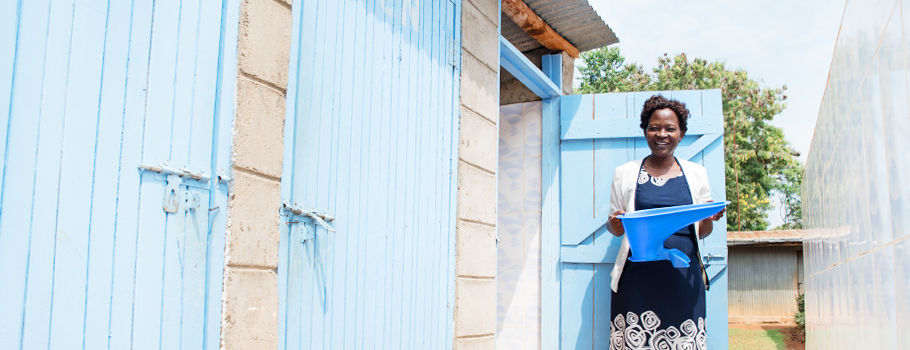
Updated: Nov 15, 2019
By Jin Song Montesano, Chairperson of the Impact Strategy Committee
How do we begin to tackle a problem as vast as poor sanitation? Over a quarter of the world’ s population still don’ t have access to safe, clean toilets, and every day, approximately 800 children under the age of five die due to diarrheal diseases caused by unhealthy conditions such as lack of sanitary toilets.
As a Toilet Maker, How Much Impact Can One Company Have?
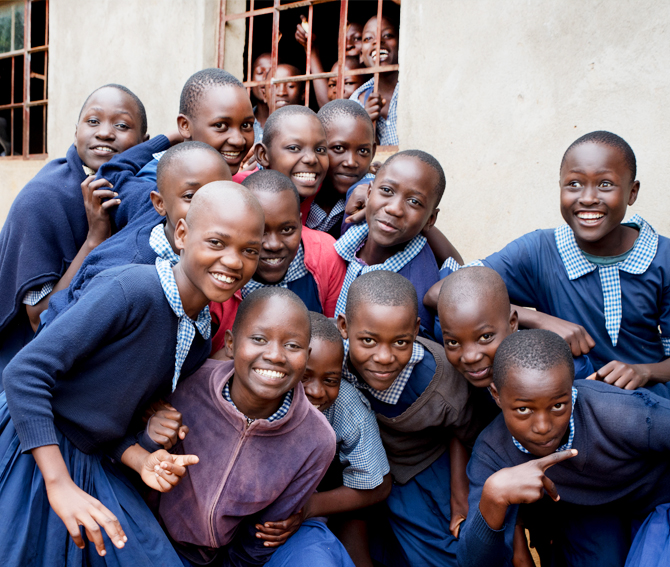
LIXIL is a leading global maker of toilets and bathroom products. We know that toilets change lives. We know we have the expertise to design toilets to help those that that need improved sanitation. And we also know that we want to help tackle this problem and make a difference.
But even as a toilet maker, how much impact can one company have? This was exactly the question we were asking ourselves in 2016. A team of engineers from LIXIL’ s American Standard Brands had worked to develop an innovative and affordable toilet pan known as SATO that could transform rudimentary pit latrines into safe, clean toilets that minimize odors and reduce the spread of disease.
Soon after, American Standard was partnering with NGOs to donate SATO toilet pans to Bangladesh and countries in Africa, based on a cause-related marketing campaign that was being run in the US. This took SATO from being a nice idea to actually improving lives, but donations and marketing campaigns would always have their limitations.
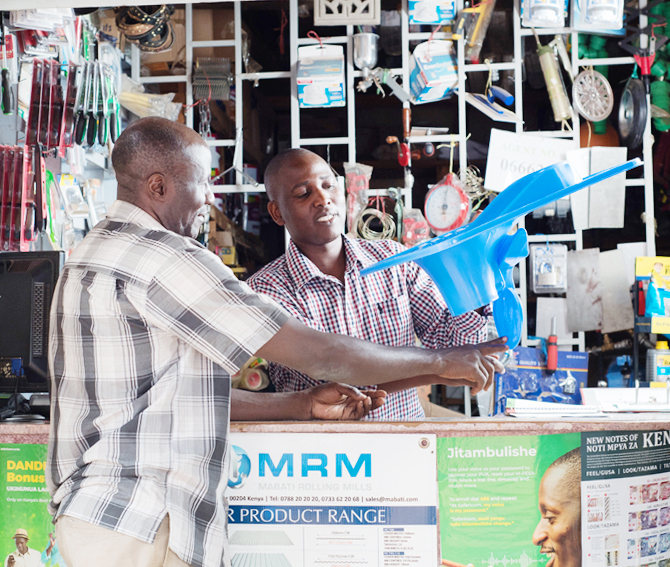
We wanted to be far more ambitious, to truly have an impact at global scale. To do so, we committed to establishing SATO as its own business unit, taking a commercial approach to the sanitation challenge. Those working on sanitation at the base of the economic pyramid know that behavior change and sustained use of the toilet is far more likely if the consumer has taken the decision to invest in the toilet themselves and understands the benefits, rather than receiving a donation. From LIXIL’ s perspective, we could also scale SATO operations much further and far faster if it could operate as a self-sustaining business.
Approximately 3 Million SATO Toilets Pans and Stools Have Been Shipped, Providing Access to Basic Sanitation for Nearly 15 Million People
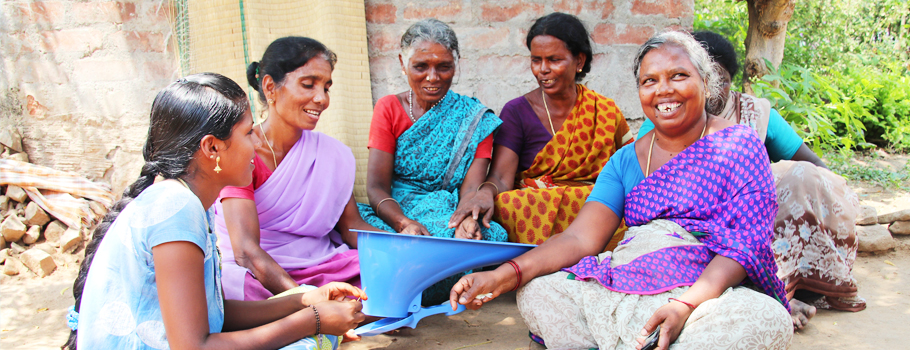
To drive focus on our goals, we set ourselves the incredibly ambitious target of improving the lives of 100 million people by 2020. Many were skeptical and thought we must be crazy, perhaps rightly so. Three years on, as we prepare for World Toilet Day 2019 on November 19, we have not hit our goal despite all the progress. While disappointing, we acknowledge this failure with a sense of pride, knowing that we have made meaningful progress, and that we would not have reached as many people without being so bold and without taking radical steps. Perhaps most importantly, we gained insightful lessons about how to reach the consumers living in the “last mile” . Such communities are the ones who need our products the most.
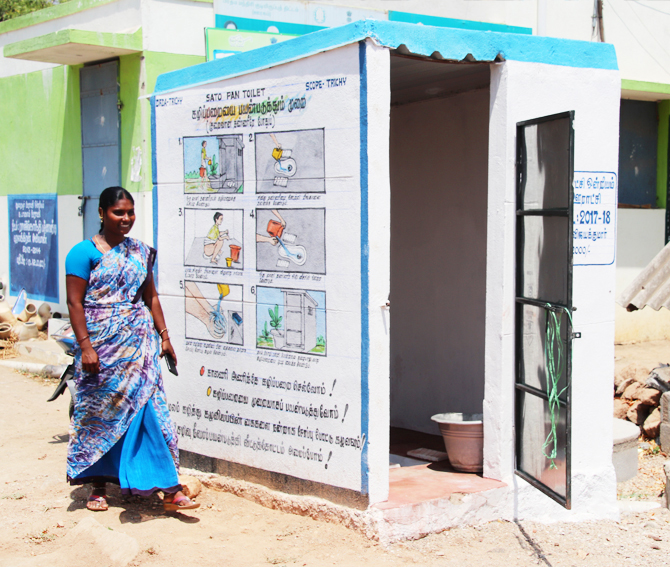
While not reaching our target, our track record shows we have made an impact. Since 2012, approximately 3 million SATO toilets pans and stools have been shipped, providing access to basic sanitation for nearly 15 million people. As of September 2019, SATO toilet pans and stools have been installed in over 27 countries across Asia, Africa and Latin America.
Over 2 million of these units have been sold or donated in Bangladesh, our first and largest market. This year, our SATO operations broke even for the first time in Bangladesh, a huge milestone and important proof that the model can work. As a country, Bangladesh has made huge strides in tackling diarrhea over the past two decades, helping to reduce the number of childhood deaths. We are proud to know that SATO has played a part.
Globally, LIXIL shipped over 800,000 SATO units in the fiscal year ended March 2019, an increase of 67% from the previous year. We are forecasting that this growth rate will increase even further this year. To accelerate and expand the reach of our activities, we have established a range of partnerships aimed at tackling the sanitation challenge with organizations including UNICEF, the Bill & Melinda Gates Foundation and JICA.
Despite missing our original timeline, LIXIL is more determined and more committed than ever. We are maintaining our original target of 100 million people but extending our timeline to 2025. At the same time, we are reaffirming our commitment to establish SATO as a self-sustaining business.
When setting our original target in 2016 there were many things that we did not yet know about the challenges we would face. We made mistakes and it took longer than we had anticipated to establish the infrastructure for success. We have learned our lessons, and armed with this knowledge, we now know what is required and are quickly scaling up our activities. This time, when asking ourselves how much impact one company can have, we know the answer.
Our Stories
- Backing People and Passions to Drive Innovation
- How Toilets in Schools are Catalyzing Change in Communities
- Building the Future by Recycling the Past
- Reinventing Consumer Connections in the World's Largest E-commerce Market
- Tackling Household Water Inefficiency in a Water-Stressed World
- Plugging the Plumber Shortage
- Pioneering Solutions to a Sewage Crisis in Rural Alabama
- Meet the Citizen Developers Changing How We Work
- Design and Brand Identity Transformation at LIXIL
- Three Changes to Prepare Europe’s Sanitary Industry for Growth
- Three Steps to Creating an Inclusive Culture
- From Linear to Circular: Giving Products in Your Home a New Lease of Life
- Crafting Unique Experiences as well as Products
- GROHE X: A Digital Brand Experience
- Design-led Innovation Delivering True Value
- Responsible Use of Plastics
- Empowering our People for an Agile Future
- Turning the Waves of Change into Opportunities
- SATO Tap: a New Handwashing Solution for All
- New Ways of Working Take Flight at LIXIL
- INAX: Rituals of Water
- Refreshing our sanitation targets, standing firm on our commitments
- Developing Attractive and Differentiated Products
- Conserving Water: The New Normal
- Insulating For a Warmer and Healthier Home
- Open Kitchen, Open Communication
- Tackling Open Defecation in India
- Shaping the Future of Faucets, One 3D Layer at a Time
- Bathed in Culture and Tradition
- Remodeling the Housing Market
- LIXIL's AQUA CERAMIC makes bathroom stains a thing of the past
- The Technology of Water
- Tackling Challenges in Global Sanitation and Hygiene
